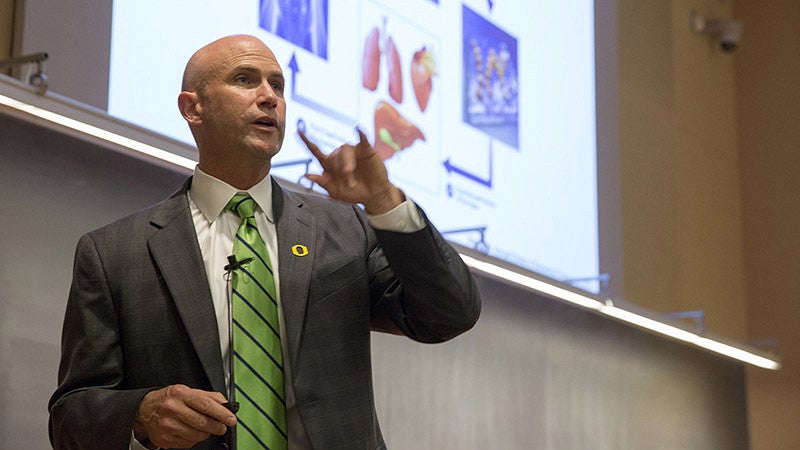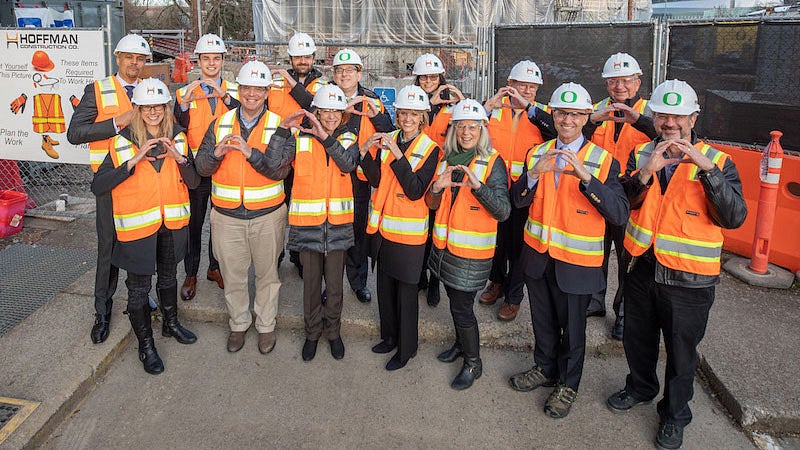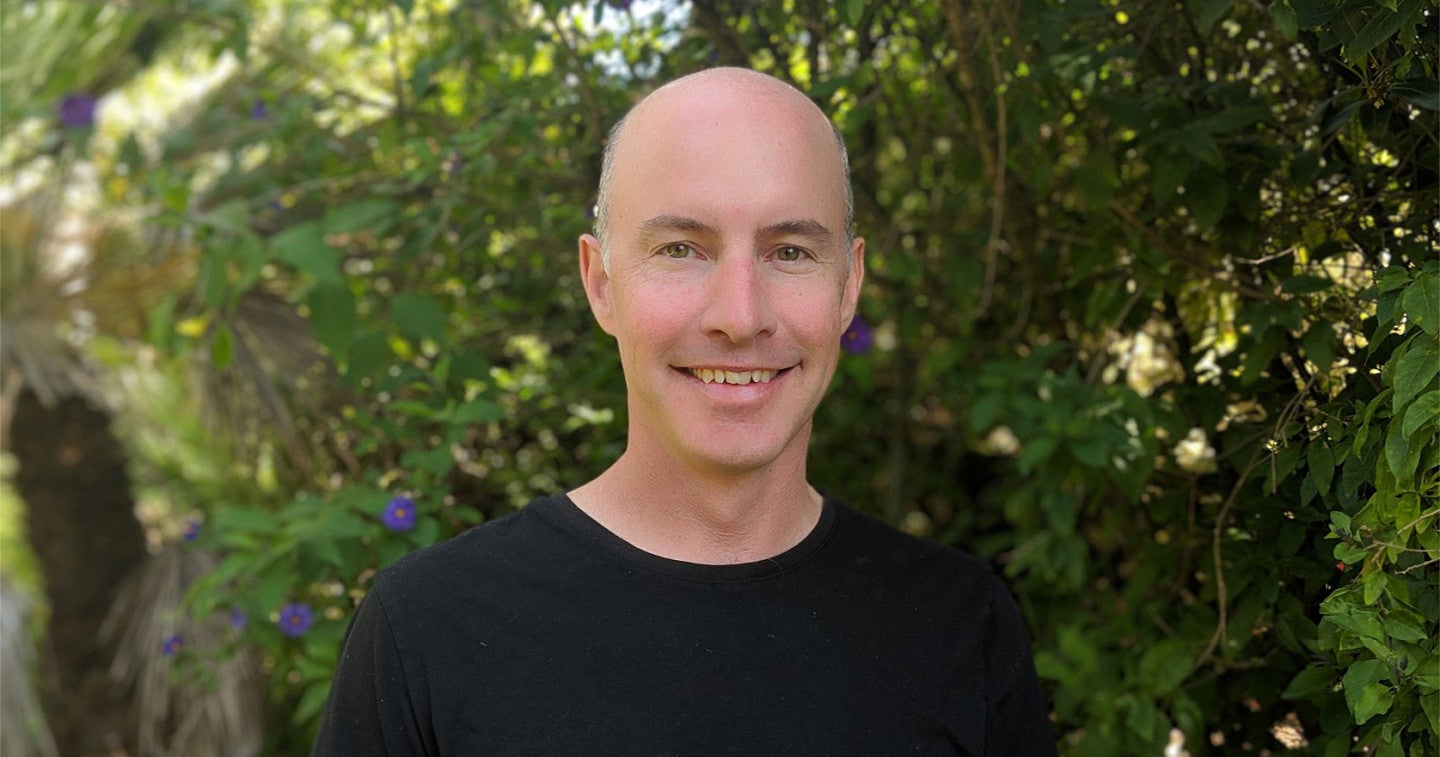
A highly regarded neuroengineer with a track record of success in academics and commercialization — most recently as a co-founder of an Elon Musk-funded startup — is among three new faculty hires at the University of Oregon’s Phil and Penny Knight Campus for Accelerating Scientific Impact.
“These three individuals represent tremendous additions of talent to the Knight Campus,” said Robert Guldberg, vice president and the Robert and Leona DeArmond Executive Director of the Knight Campus. “Their experience ranges from senior level to early career. Collectively they create a strong foundation for the future of the Knight Campus.”
Tim Gardner, a biology and biomedical engineering faculty member at Boston University and co-founder of the Musk-funded Bay Area startup Neuralink, plans to start at the end of June at the Knight Campus as the Robert and Leona DeArmond Chair in Neuroengineering.
Throughout his career, Gardner has worked at the interface of neuroscience and technology and successfully translated his work into a commercial venture, maximizing the impact of his university research.
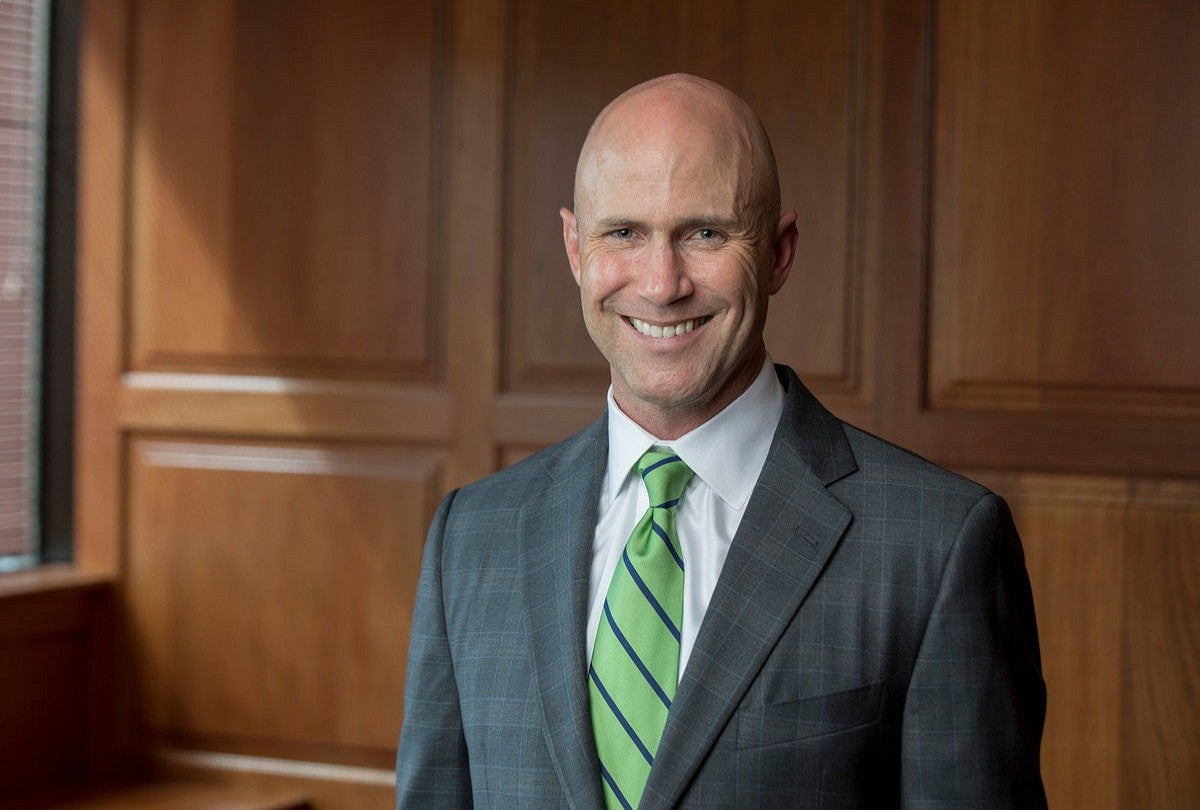
“Tim’s work in neuro-technology at the intersection of academics and industry embodies the Knight Campus mission of entrepreneurial discovery. It’s because of Bob and Leona DeArmond and the DeArmond Trust that we’re able to attract innovative researchers of Tim’s caliber to Oregon and the Knight Campus. His hiring marks a real milestone in our growth not only for the Knight Campus, but for the University of Oregon’s efforts in translational and applied research.”
—Robert Guldberg
Vice President and Robert and Leona DeArmond Executive Director of the Knight Campus
The UO announced two additional hires for the Knight Campus, a billion-dollar initiative made possible by a $500 million lead gift from Penny and Phil Knight, BBA ’59. The effort aims to integrate research, training, and entrepreneurship into a single, nimble, interdisciplinary enterprise.
Keat Ghee Ong, currently the Portage Health Foundation Professor of Technological Innovations in Health in the department of biomedical engineering at Michigan Technological University, will bring his expertise in implantable sensors, wireless sensors, electronic devices, and magneto-elastic materials, to the UO this summer.
Marian Hettiaratchi will join the Knight Campus in January 2020. She is currently a post-doctoral fellow at the University of Toronto where her research focuses on combining chemical and biomedical engineering approaches to create effective biomaterials that can precisely deliver proteins for tissue repair.
Gardner’s recruitment was a collaborative effort with the UO’s Institute of Neuroscience. Before taking on a leadership role at Neuralink, he led Boston University’s Laboratory of Neural Circuit Formation. The lab’s research focuses on vocal learning in songbirds. There, researchers led by Gardner developed a high-resolution 3D printer and other methods to fabricate ultra-small electrodes to record the neural correlates of birdsong.
The sensors, or electrodes, are so small, they can be implanted in nerves the size of human hair, or record stably from neurons in the brain’s song control system. In addition to recording activity, the tiny devices could potentially stimulate the central and peripheral nervous system to treat disease. The methods could provide higher resolution deep brain stimulation to treat diseases like Parkinson’s, or in the case of the peripheral nervous system modulate end organs to treat a range of diseases including rheumatoid arthritis, and even asthma and infertility — a field known as bioelectric medicine that is in its infancy.
Gardner holds a bachelor’s degree in physics from Princeton University and earned his doctorate in biology and physics from Rockefeller University. He did post-doctoral fellowships at Rockefeller University and the Massachusetts Institute of Technology. His numerous awards and honors include National Institutes of Health Brain Initiative grants and membership in the National Academy of Inventors.
Gardner’s background in neuroscience and skills in engineering make him a sought-after partner for colleagues in the UO’s Institute of Neuroscience, said David McCormick, a biology professor and director of the institute.
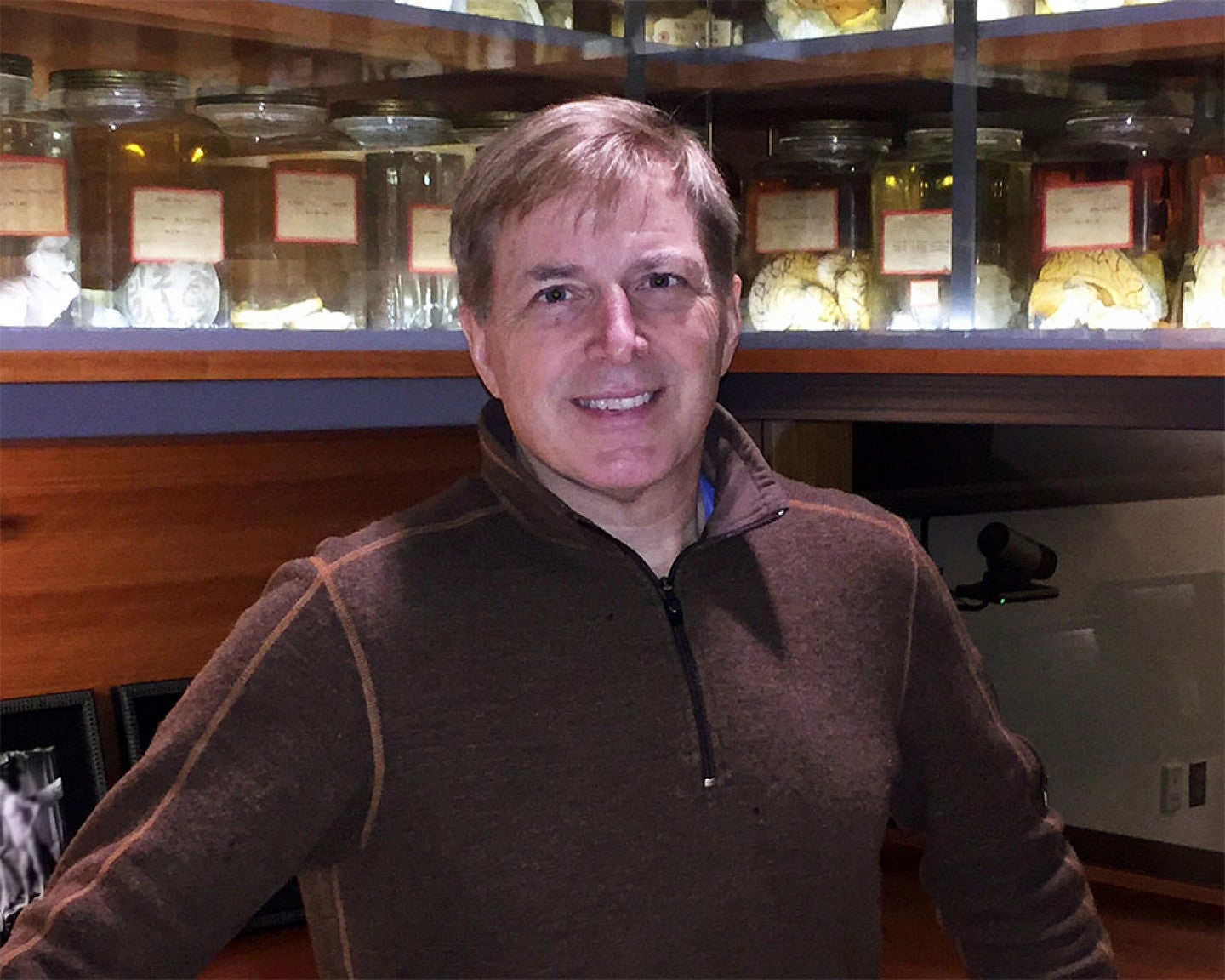
“Tim brings to the UO a mindset of innovation and application. His hiring creates an even stronger link between our work in neuroscience and the entrepreneurial mission of the Knight Campus. This positions the UO to build on its existing strengths and to maximize the impact of our discoveries through the Knight Campus.”
—David McCormick
Director, University of Oregon Institute of Neuroscience
Neuralink, which over the last two years has grown from eight to more than 85 people, is building high-resolution brain interfaces for humans. The founding team brought expertise in microfabrication, surgical robotics, chip design and data analysis, and their website describes a wide range of open engineering positions. It’s evidence that a diverse team, focused on important hard problems can make rapid progress, even in extremely challenging areas such as brain-machine interfacing, Gardner said.
“I’ve always been interested in maximizing the impact of academic research,” he said. “The Knight Campus and the UO’s Institute of Neuroscience combine to present a very captivating opportunity to develop team-based neuro-technology projects.”
With the 160,000-square-foot first building of the Knight Campus slated to open in spring 2020, the timing couldn’t be any better, said Gardner.
“We are at a turning point, where stem cell therapies or human brain machine interfaces will soon lead to major real-world impact of modern neuroscience,” he said. “Opportunity is knocking, and I’m ready to help answer it at the University of Oregon.”
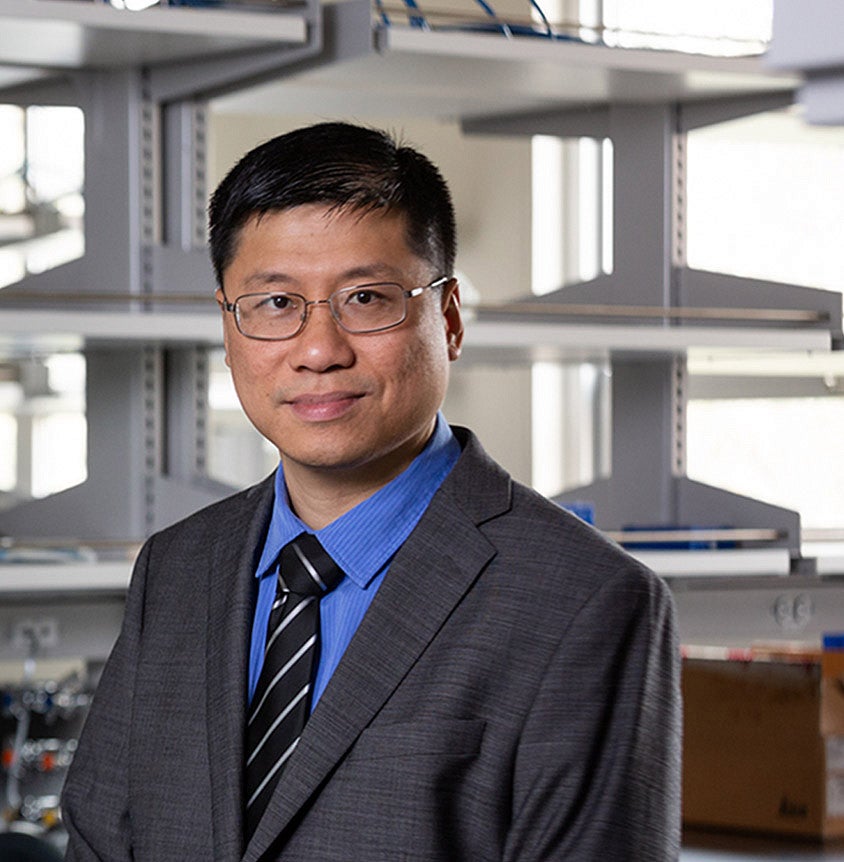
Keat Ghee Ong will start work at the Knight Campus this summer. He is currently the Portage Health Foundation Endowed Professor of Technological Innovations in Health in the department of biomedical engineering at Michigan Technological University.
He received his bachelor’s and master’s degrees and his doctorate in electrical engineering from the University of Kentucky.
Ghee’s research centers around implantable sensors, wireless sensors, electronic devices, and magneto-elastic materials. He was involved in the development and implementation of a number of wireless sensor technologies including magneto-elastic resonant sensors and inductive-capacitive resonant circuit sensors for biomedical applications. Currently, Ghee focuses on the development of “smart implants”, which are based on wireless sensor/actuator platforms that not only can monitor physiological conditions in real time, but also react and adapt to changes for improving treatment outcomes.
Ghee is enthusiastic about developing diverse student pipelines into engineering training and supporting professional development programming to encourage broad career paths.
“I am thrilled to join the Knight Campus because it presents an opportunity to solve real-world medical problems with smart engineering innovations,” Ghee said. “It also provides an opportunity to build new, innovative education programs that are based on creative, interdisciplinary curricula integrating the sciences with engineering.”
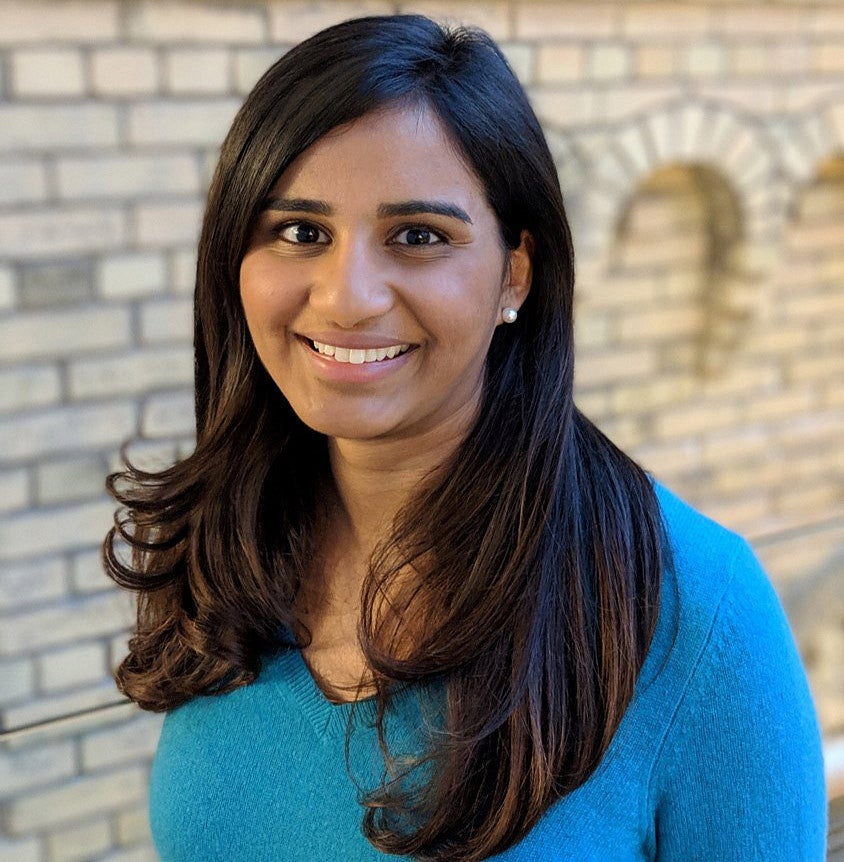
Marian Hettiaratchi will join the Knight Campus in January 2020. She is currently a post-doctoral fellow at the University of Toronto where her research focuses on combining chemical and biomedical engineering approaches to create effective biomaterials that can precisely deliver proteins for tissue repair.
She holds a bachelor’s degree in chemical engineering with a biomedical specialization from University of Calgary and a doctorate in biomedical engineering jointly from Georgia Tech and Emory University.
Her work involves developing protein delivery vehicles for regenerative medicine by integrating cutting-edge techniques in protein engineering, polymer chemistry, and computational modeling to design versatile, clinically-relevant biomaterials.
As an educator, Hettiaratchi said she enjoys bridging the gap between fundamental and translational knowledge to develop innovative healthcare technologies and educating the next generation of engineers and scientists to do the same. She is committed to developing initiatives to make science, engineering and math more accessible to students from underrepresented groups, by fostering inclusivity in the classroom and diversity in research.
“My research program will directly interface with many research areas in UO’s scientific community, including molecular biology, materials chemistry, bioinformatics, and a variety of disease models,” she said. “I couldn’t be happier to be among the first Knight Campus faculty. Like many at the UO, I can’t wait for 2020.”



